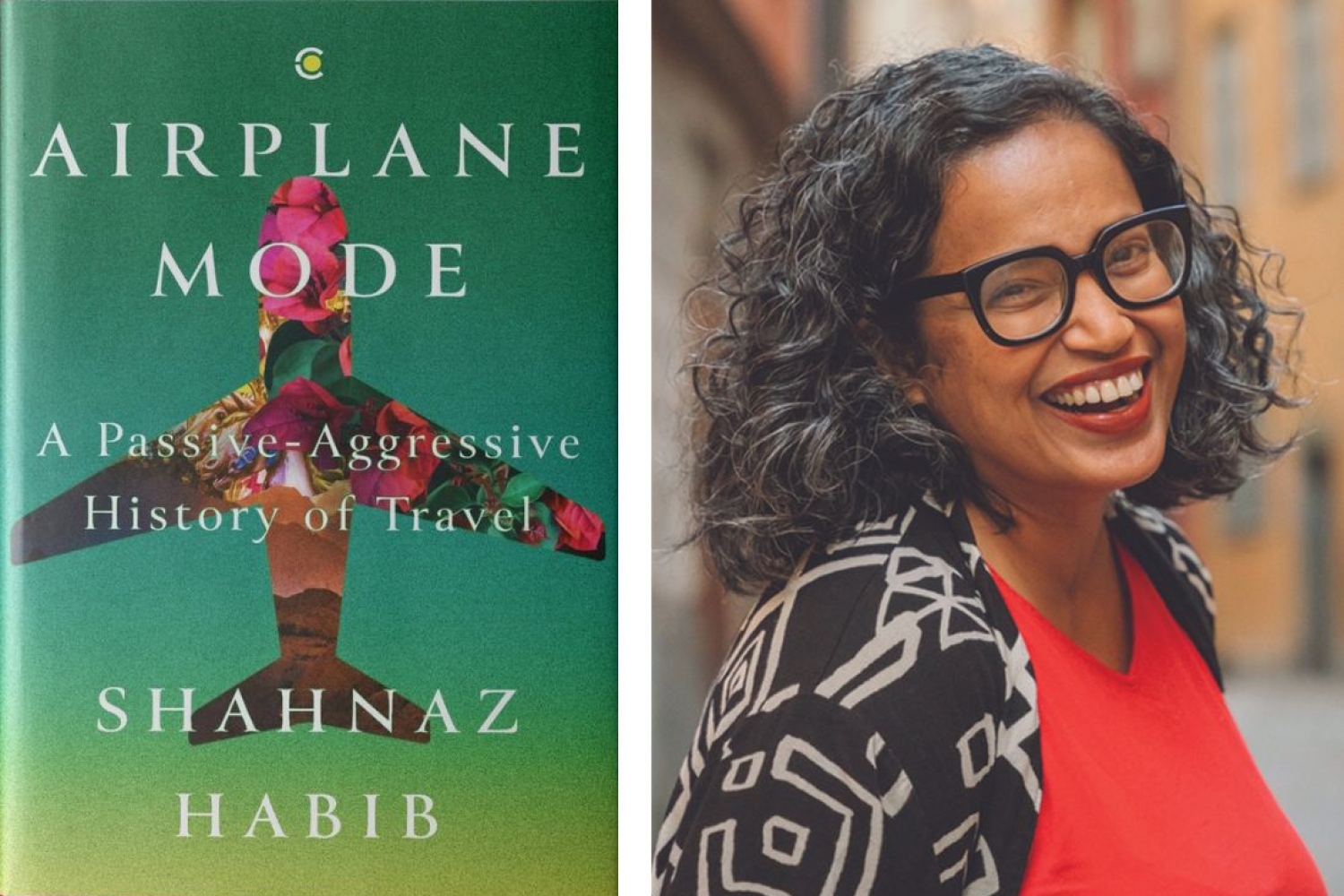

Shahnaz Habib, renowned for her translation of the 2018 JCB Prize-winning book, Jasmine Days, has ventured into the world of travel writing with her debut book, Airplane Mode: A Passive-Aggressive History of Travel. As a translator, Habib often traveled through languages, making distant and culturally estranged places accessible to English readers. This linguistic journey naturally extended to her writing about real-world adventures. Her book provides a witty and personal account of the history of travel through the perspective of a Muslim woman from the global south. Habib’s unique lens offers a fresh take on travel, seamlessly blending personal anecdotes with broader historical narratives. It encourages you to make a thoughtful andreflective approach to travel, something more than just a journey but an exploration of self and society.
Habib talks to us about her perspectives on translation and travel writing, the evolving relevance of guidebooks, the guilt associated with traveling, and the connection between personal and historical travel experiences.
TRANSLATION AND TRAVEL WRITING
Both translation and nonfiction have been long-term projects for Habib, running ‘invisible parallel courses.’ She explains, ‘I do see the world through a translator’s filter and that has definitely been part of the perspective I bring to writing nonfiction.’ This dual perspective enriches her narrative, blending the precision of translation with the expansive storytelling of travel writing.
THE EVOLVING ROLE OF GUIDEBOOKS
Guidebooks remain relevant even in the digital age, according to Habib. ‘There are so many different kinds of guidebooks and so many different kinds of tourists — a lot depends on what you want from a guidebook. Some of them are on niche topics (the design-lover’s guide to Stockholm, etc.) while others cater to specific identity groups (queer travellers, for instance). And given how we all have access to way too much information online, it can be quite lovely to have a good guidebook curate that information for you. So yeah, I think they are still relevant in ways that are evolving.’ Her insight highlights the adaptability and enduring importance of guidebooks in a world saturated with information.
CONFRONTING TRAVEL GUILT
Travel often brings a sense of guilt, especially in a world increasingly aware of environmental and cultural impacts. Habib candidly addresses this, saying, ‘To be honest, I don’t know if we should detach from the emotions that rise up when we travel. We live very environmentally destructive lifestyles and we are surrounded by a culture of disposability, even when we are not traveling. I think we need to confront that, and often guilt is the starting point.’
CONNECTING PERSONAL AND HISTORICAL TRAVEL
Habib emphasizes the interconnectedness of personal experiences and broader historical contexts in travel. ‘Our small lives are always part of the bigger picture. Even if you are on vacation, history does not stop, politics is still part of your life and as Krishnamurti put it, “you are thinking your culture’s thoughts.” So I don’t see a disconnect between the broader history and the personal experience.’
THE GREY SPACES
Despite her extensive exploration of travel, Habib admits, ‘I am not a travel expert. I am quite confused by travel. I hope readers see that the confusing parts of travel are the most interesting parts and make their own explorations into those grey spaces.’ Her approach invites readers to embrace the uncertainties of travel and explore the complexities that make each journey unique.
Words Paridhi Badgotri
Date 08.07.2024